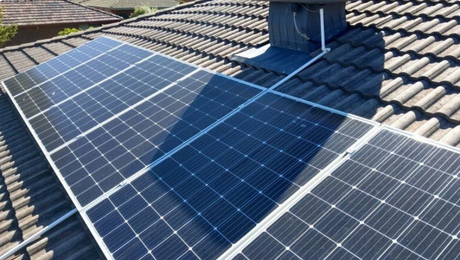Lithium batteries are known for their excellent performance and durability, but cold weather can significantly impact their efficiency and lifespan. If you live in a cold climate, learning how to protect and maintain your lithium battery or 12V lithium battery is essential for reliable performance during the winter months. Keep reading to discover practical tips and the best batteries for freezing temperatures.
What Happens to Batteries in Cold Weather?
Cold weather can significantly alter the performance of batteries, including lithium batteries. When temperatures drop, the physical and chemical properties that power batteries begin to change, impacting their efficiency, capacity, and overall performance.
1. Reduced Electrolyte Conductivity
Lithium batteries rely on the movement of lithium ions through the electrolyte between the anode and cathode during charging and discharging. In freezing conditions, the electrolyte becomes more viscous, reducing its conductivity. This slows the movement of ions, making it harder for the battery to charge and discharge effectively.
2. Slower Chemical Reactions
Temperature and chemical reactions are closely linked. In low temperatures, lithium ions lose kinetic energy, which slows the processes of intercalation (ions embedding in the anode or cathode) and deintercalation (ions leaving during discharge). This reduced efficiency results in lower capacity and diminished power output.
3. Risk of Lithium Plating
One of the most critical risks in freezing weather is lithium plating. During charging in cold conditions, lithium ions may deposit on the anode’s surface rather than integrating into its structure. This not only reduces the battery's capacity but also poses safety risks such as short circuits or even thermal runaway.
4. Increased Internal Resistance
Cold weather increases a battery’s internal resistance, meaning it requires more energy to perform basic operations. This elevated resistance reduces charging efficiency and accelerates degradation, shortening the battery’s lifespan over time.
How Does the Cold Affect Battery Performance?
Cold weather doesn’t just alter a battery’s internal processes—it also significantly impacts its practical performance, which is what most users care about. Here’s a closer look at how low temperatures affect lithium battery functionality:
Reduced Energy Output in Everyday Use
In freezing conditions, lithium batteries often deliver less power than their rated capacity. This means devices or systems powered by these batteries may experience shorter runtimes or reduced efficiency. For example, your outdoor equipment might stop functioning sooner than expected during winter.
Slower Charging Speeds
Cold weather slows the movement of lithium ions within the battery, which hampers the charging process. Batteries in freezing conditions may take significantly longer to charge and struggle to reach their full capacity, leading to frustration for users who rely on quick recharges.
Strain on Power Delivery
The internal resistance of lithium batteries increases at low temperatures. This resistance forces the battery to work harder to deliver the same power output, causing inefficiency and potential overheating in extreme cases. Devices might show signs of power instability, such as fluctuating performance.
Accelerated Wear and Tear
Repeated exposure to freezing temperatures without proper protection accelerates the aging process of the battery. Over time, this reduces its ability to hold a charge and leads to a shorter overall lifespan.
Risk of Lithium Plating
When charging in extreme cold, lithium plating—a phenomenon where lithium ions accumulate on the battery’s anode—can occur. This not only reduces the battery’s capacity but also increases the risk of internal short circuits and potential safety hazards.
But don't worry, Renogy Self-Heating LiFePO4 Battery got you back! With its innovative self-heating technology, this battery delivers reliable, consistent power even in freezing conditions. No more monitoring your power system or waking up to a dead battery.

How to Protect Your Lithium Batteries in Cold Weather?
If you are living in cold weather environments, there are several ways in which you can protect your battery for enhanced safety and performance. Here are some measures you should consider taking:
1. Insulating the Battery
Use a thermal battery blanket to keep your lithium battery at favorable temperatures during the freezing period. Thermal or insulating blankets are specially designed to keep the batteries at the optimum operating temperature range. Insulating the battery helps prevent the adverse effects of cold temperatures on it, thus enhancing its performance, safety, and durability in cold weather conditions.
2. Preheat the Batteries
Warm up the battery before you start using it if you are operating in freezing weather conditions. The best way to preheat the battery is by keeping it in a warm room or using a battery warmer. Preheating the battery helps to activate the internal chemical reactions for improved performance. Also, warming up the battery before use helps prevent problems such as decreased capacity and efficiency.
3. Store the Battery in a Warm Place
When not in use, store the battery in a temperature-controlled warm room or any other warm space. Ideally, consider storing it at about 10°C (50°F) to prolong its life and to prevent its capacity loss.
4. Check the Battery Regularly
Monitoring the battery consistently will help you understand its effectiveness in cold weather. Monitoring key performance indicators such as charge levels will enable you to identify signs of stress and degradation. Monitoring the battery regularly allows you to correct any potential problem with the battery on time, ensuring optimum performance and longevity of the battery.
5. Keep the Battery Clean
You must always ensure that your lithium battery is clean, especially during cold temperatures. Grime, debris, and dirt will insulate the battery, thus worsening the cold temperature effects on the battery’s performance.
Clean the battery regularly using a dry and clean cloth by wiping the external parts of the battery, focusing on the electrical inlets and outlets. Regular cleaning will prevent dirt accumulation, thus maintaining the battery’s ability to operate within ideal temperatures for a consistent performance.
6. Avoid Charging Rapidly
Charging the lithium battery rapidly in freezing temperatures will affect its performance and damage it. Freezing temperatures will inhibit the battery’s ability to accept a quick charge, thus increasing the instances of damage, such as lithium plating. It’s safer and more effective to charge your battery steadily, as it prolongs the battery life in cold temperatures.
Final Thoughts
Cold weather does impact the performance and durability of the battery. It’s vital for you to understand the impact of freezing temperatures on your lithium battery's performance, safety, and longevity. Although the 12V lithium battery can withstand cold weather better than other battery types, you need to understand the effects of cold temperatures on the battery and how to keep it in good condition throughout the cold season. For optimal performance, keep your battery in warm spaces, avoid fast charging when it’s too cold, and inspect the battery regularly. However, with high-quality specially designed batteries for cold weather, you don’t have to do so much to keep your battery in good condition.
Discover a wide range of Renogy 12V lithium batteries designed to withstand and function optimally in freezing weather with minimal maintenance.
FAQs About Lithium Battery
1. What is the lithium battery's ideal working temperature range?
The best working temperature range for lithium batteries for enhanced longevity and efficiency is between 20°C and 25°C (68°F and 77°F). At this temperature range, the internal chemical reactions are not subdued by cold weather. On the other hand, it does not affect the battery’s lifespan or performance due to extremely high temperatures.
2. Can lithium batteries operate effectively outside the optimal temperature range?
Yes. Most lithium batteries will still operate well outside the ideal temperature range. They can still function optimally within -20°C to 60°C / -4°F to 140°F when discharging and 0°C to 45°C / 32°F to 113°F when charging. However, operating the lithium battery outside its temperature range will cause faster battery degradation and a shortened lifespan.
3. Do lithium batteries freeze in winter?
Typically, lithium batteries do not freeze during cold weather. However, their electrolyte efficiency decreases during frigid climates. The decreased efficiency of the electrolytes can cause reduced performance and, consequently, damage to the battery.










